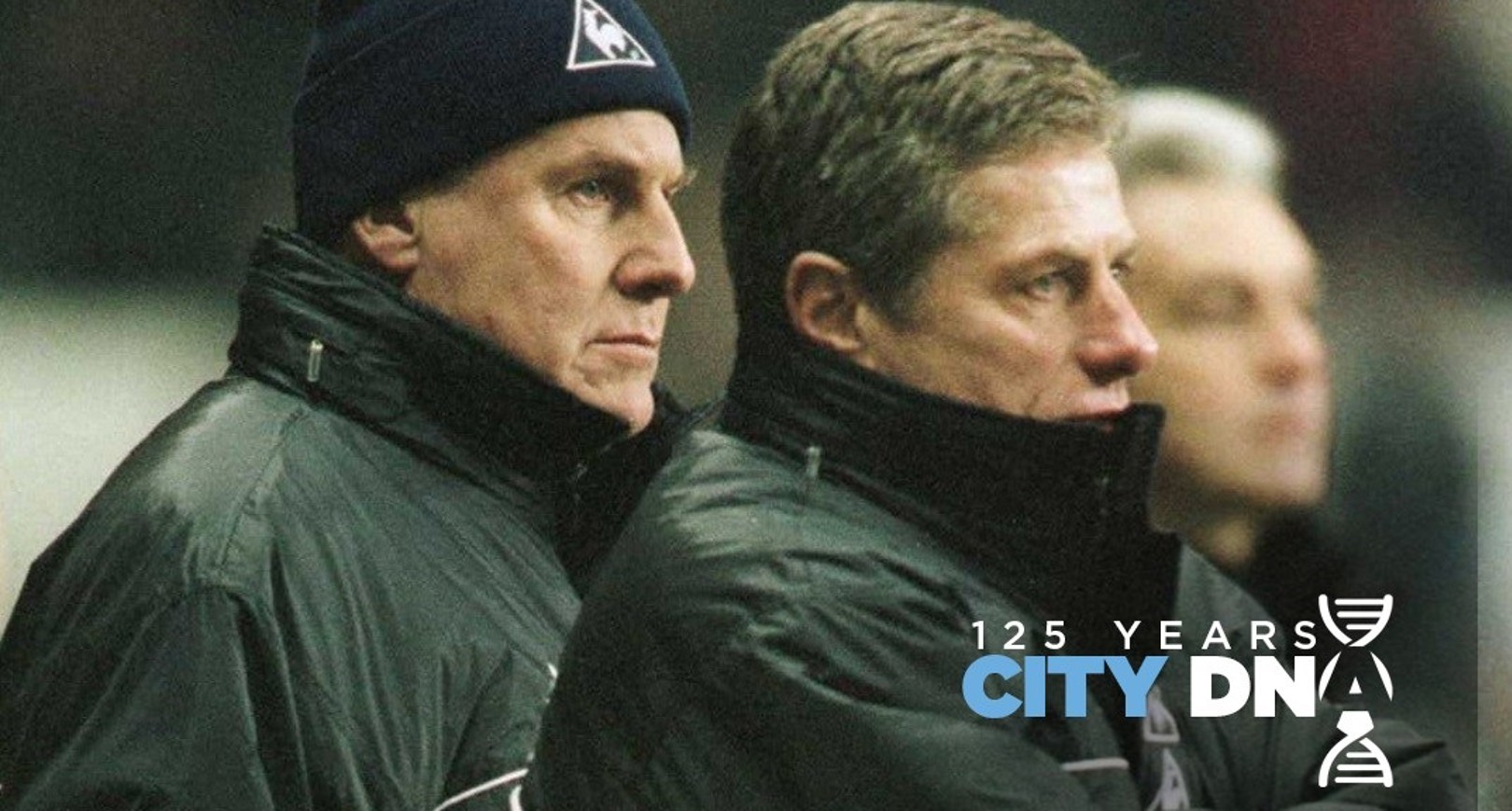On his 70th birthday, many players who experienced Donachie’s coaching have shared their admiration for the innovative Scot, whose influence on the events that day at Wembley are far greater than he has ever been credited with.
CITY+ | Free to Cityzens until football resumes
The hugely likeable Donachie, intelligent and laid-back, was a superb coach and, as many City fans of a certain vintage will testify, also a fantastic defender in his day, gradually taking over from the equally excellent Glyn Pardoe.
During a decade of service for the Club, the Scottish left-back clocked up 437 appearances – the tenth highest amount of games in City’s history – not forgetting his two goals!
He also won 35 Scotland caps along the way, but when his 22-year playing career ended, it was natural for him to move into coaching, first as player-coach at Oldham Athletic, then at Everton and later City during a 17-year association with Royle.

“Willie Donachie was absolutely brilliant,” said Shaun Goater. “He would have us warming up then we would stop and be panting after 15 minutes - plus it’s raining – he’d say ‘Right, now stop. Now look at the grass, now look at one blade of grass and listen to the sounds, and that sort of stuff.
“It’s not for everyone, but I engaged in it because it helped me. From that point, I went on to get a psychologist to help me with my game and that’s when I kicked on scoring goals, being able to block out crowds even when things were going great and just concentrate on the game.
“Joe Royle and Willie were absolutely superb. My mind was starting to think of the concepts that Willie was talking about - about the focus, how to block out the crowd and just focusing on your responsibility.”
Former midfielder-turned pundit Michael Brown recalls how Donachie only wanted players to be upbeat, happy and optimistic, adding: “All Willie wanted to have was positivity around the place.
“He always said ‘never give up’, and that’s one thing I took from my time with him - keep going to the end and always believe. He was so positive and used lots of psychological methods which, back then, was new.
“He was the one saying’ keep going’ even right at the end against Gillingham - it was Willie driving it through and because of that type of positivity, it did come true.

“In that game, was once the second goal went we just knew there was no way we were going to get beat. We were always going to win the penalty shootout and do it the way we did.
“That’s what Willie wanted - that was his thing. Joe was different to how he wanted to motivate the team, but Willie had this thing about not giving up and that positivity.”
Skipper Andy Morrison recalls Donachie’s unique outlook on coaching and the effects his thinking had at crucial times – none more so that the 1999 play-off final.
“Willie Donachie has an incredibly philosophical approach to life and is a great believer in fate and how things are meant to be,” said Morrison.
“He just kept pushing. He was down on the sidelines, and saying ‘just keep getting the ball, keep moving it, try changing the angles’.
“And we changed the angles a couple of times and then we hit Gareth Taylor, then a knock and flick from there, and obviously Dicky gets in and it’s 2-2 and then that’s it for me.
“It’s easy to say it now in hindsight but you knew at the time. They had about eight centre halves on the pitch to just see it out.”
So, on a day when the class of 1998/99 became part of Manchester City folklore and Joe Royle quite rightly is remembered as one of the Club’s most popular managers, the influence of Willie Donachie in the events of May 30, 1999 is rarely – if ever – spoken about.
The truth is, his positive thinking and being able to instil a belief that there is no such thing as a lost cause was just as important as the goal scored by Paul Dickov or the saves made by Nicky Weaver.
Instead, Donachie should be perhaps remembered as one of the most innovative and intelligent coaches City have ever had – unsung or otherwise.








